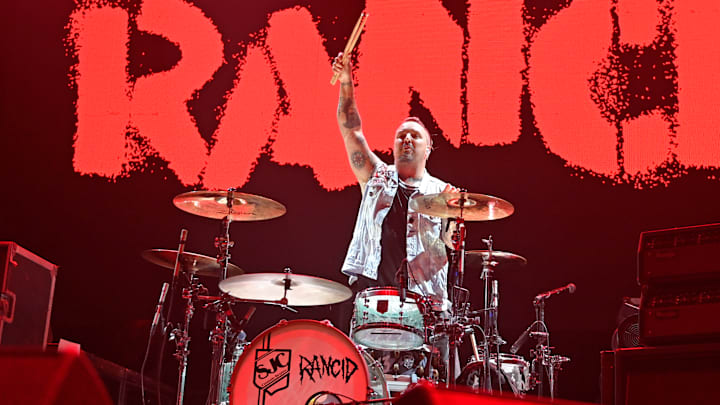1990s – hip hop, grunge, and the divas. Bands gave way to institutions. You only needed one name – Madonna and Mariah, Janet and Celine, Eminem and Dre. Nirvana. By the end of the decade, even the delivery system was changing. Napster arrived and threatened the entire business model. It was a turbulent era. It produced some phenomenal music.
The albums I am choosing for a perfect list mostly reflect what was going on beneath that popular mainstream surface. They are not as well-known outside their fanbases as some of the other albums I have praised from earlier decades. Maybe that’s because music was expanded in all directions and it just became harder and harder to be all things to all people.
But that should not imply that any of these albums are somehow small. They may exist in smaller universes than the biggest-sellers of the day, but within those universes, they are explosive works of art. Some are loud and bold. Some are quiet and heart-wrenching. All are perfect.
Five perfect albums from the 1990s
A TRIBE CALLED QUEST: LOW END THEORY (1991)
In the early ‘90s, hardcore rap was ascendant. Writers like Chuck D and Ice Cube were producing some of the most pointed social commentary in the country. The decade would come to be known for the violent deaths of two of hip hop’s finest spokesmen when Tupac Shakur and The Notorious B.I.G. were gunned down in 1996 and ’97 respectively.
Through all the turbulence – the violence and misogyny and homophobia – through all the political firestorms and cultural earthquakes – a couple of childhood friends from Queens somehow managed to avoid most of the craziness and produce great, thought-provoking music. On their second album, released when Q-Tip and Phife Dawg – along with their DJ Ali Shaheed Muhammad – were all 21 years old, they created an all-time masterpiece.
The Low End Theory rejected most of the production bluster of many of their contemporaries. And though the two friends weren’t above blowing their own horns, their entire demeanor never approached the cartoonish bluster of other top-shelf rappers. Low End suggested that intelligent writing and a solid groove could blow the doors off most current hip hop. So they could do a dis track aimed at the standard issue “Rap Promoter.” But Q Tip’s threat wasn’t that he would blow away a greedy promoter with his AK. It was simply that he wouldn’t play the show. There was a maturity to the way A Tribe Called Quest saw the world that escaped most supposedly more mature artists.
It is apparent from the first track – “Excursions” – which begins by sampling jazz great Art Blakey and later uses Last Poets Umar Bin Hassan’s “Time” to comment on how culture is cyclical - Tribe was clearly drawing on far more than standard issue breaks for their music. Low End Theory has hits, like “Buggin’ Out” which has been ubiquitous in film and television since the ‘90s, and “Check the Rhyme,” a beautiful origin story about a couple of friends who began rapping together before they hit double digits.
And it wasn’t without controversy. But even its most infamous track – “Infamous Date Rape” – approaches the subject of sexual assault with a nuance that you rarely find in pop music regardless of genre. In short, Low End Theory offered up 14 songs, each with a solid beat and smart lyrics. And not a skit in sight.
